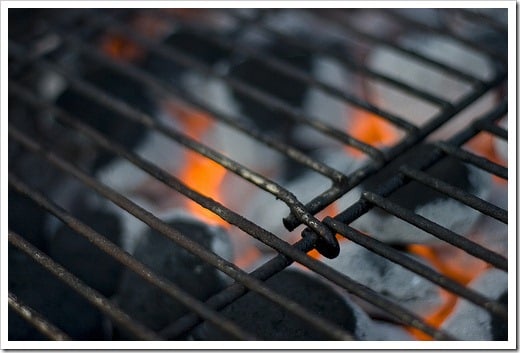Grilling Safety
June 30, 2011//Comments Off on Grilling Safety

Grilling outside on your gas or charcoal grill is an American rite. It is also the source of many injuries and even death. Now I don’t want to scare you all, but I do want you to have a safe Fourth of July, so I’ve put together these grilling safety tips.
According to the National Fire Protection Association’s report “Home Fires Involving Cooking Equipment,” by Marty Ahrens, November 2010
- In 2004-2008, U.S. fire departments responded to an average of 7,700 home fires involving grills, hibachis or barbecues per year, including an average of 3,200 structure fires and 4,500 outside fires. These 7,700 fires caused an annual average of 13 civilian deaths (to the nearest ten), 120 civilian injuries and $70 million in direct property damage.
- More than one-quarter (29%) of the home structure fires involving grills started on a courtyard, terrace or patio, 28% started on an exterior balcony or open porch, and 7% started in the kitchen.
- Flammable or combustible gas or liquid was the item first ignited in half of home outdoor grill fires. In 49% of the home outdoor fires in which grills were involved, 56% of the outside gas grills, and 39% of gas grill structure fires, the fire started when a flammable or combustible gas or liquid caught fire.
According to the Tennessee state Fire Marshall half of grill fires begin on an exterior balcony or unenclosed porch. Their office recommends following these safety guidelines:
- Keep the grill away from siding, desk railings, overhanging eaves and branches.
- Keep the grill away from lawn games, foot traffic and play areas.
- Create a 3-foot “safe zone” to keep children and pets away.
- Use grilling tools with long handles; keep several handy.
- Periodically remove grease buildup in trays to prevent ignition.
- Do not leave the grill unattended.
- Keep combustibles away from heat in case gas grills leak.
- Check the hoses for leaks before first use each year. (Applying a light soap and water solution will reveal any escaping propane.) If there are leaks, turn off the valve and have the grill serviced by a professional.
- If you smell gas while cooking, get away from the grill and call the fire department. Do not move the grill.
- Gas cylinders should have an overfill protection device (identified with a triangle-shaped hand wheel).
- Follow the manufacturers’ instructions on how to set up the grill and maintain it.
- Never store propane gas cylinders in buildings or garages. If you store a gas grill inside during the winter, disconnect the cylinder and leave it outside.
- When using charcoal grills, avoid using starter fluid – use a chimney starter instead. This is a cylindrical metal tube that uses paper to start the coals. Never add charcoal starter fluid when coals or kindling have already been ignited, and never use any flammable or combustible liquid other than charcoal starter fluid.
Oh, and do download this PDF on Grilling Safety.
Photo credit: flickr user Ashley R. Good
Posted in Ruminations

